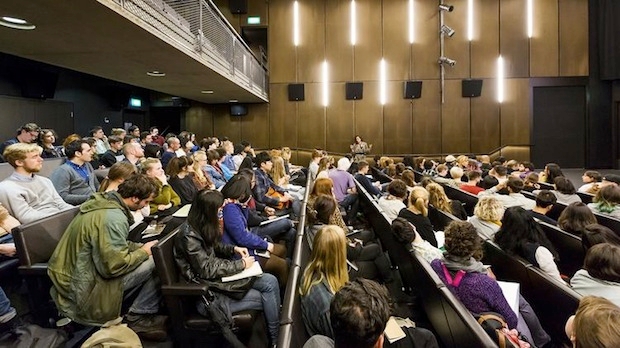The world exists and then it disappears, piece by piece, the gaps widening until one age is replaced by another, leaving only fragments of the past. With luck, these pass through the hands of curious collectors dedicated to bridging the gaps formed by the desecrations of time, before reaching a terminus point in a museum as votive offerings on the altar of culture. And that’s where it so often goes wrong.
Charged with the care and conservation of these precious fragments, curators can all too easily become anxious hoarders of knowledge instead of agile communicators serving a synaptic function between object and audience. Curating as an art of defence — usually against the public and its uncomfortable demands — is the default reflex of a certain type: slow-burn institutionalised careerists filling dead men’s shoes. Subject expertise of real depth takes years of committed research and firsthand understanding of cultural artefacts, but this isn’t the same as developing the special skill of exciting people with illuminating stories. Storytelling is essentially an act of generosity, not the display of knowledge itself.
But generosity towards the visitor is rarely the primary sensibility inculcated in those studying curating in our universities and art colleges, for this would situate curatorial practice within the cheerful commercial terrain of the leisure and tourism industry rather than as a high-minded adjunct of academic research. Paying lip-service to a predictable range of ‘progressive’ concerns — accessibility, diversity, cultural democracy — po-faced curators rarely focus on service itself, on the delivery of quality and delight, for this would, they silently fear, render them functionaries of pleasure rather than guardians of righteous thinking.
‘Progressive’ curating — especially that incubated within cultural studies departments — can be afflicted by an intense narcissism, where a thin line (often overstepped by the incautious or intemperate) exists between an individual’s volatile identity politics and their professional credo. But curating isn’t therapy.
Curating courses shouldn’t serve as a sanatorium for fragile sensibilities, where obtuse critical theory distributed as medication produces a misplaced sense of infallibility. Too often, students start such courses as lively, alert citizens of the world and end up dulled parrots of ideological cant that everybody in the seminar room knows makes little sense but which nonetheless elicits nods of collective approval for fear of shattering the illusion of significance.
Well-connected curating students leave straight for the door marked ‘Art Market’, where such cant is quickly reduced to bite-sized sales spiel and weak essays swapped for matt-perfect brochures. Others — the junior high priests and priestesses of a repressive cult of limited options — seek more and more arcane subjects for research, equating pinhead-sized specialism for genuine cultural insight. Better students reinvent the term ‘curating’, taking it out of the art world altogether, freeing it from the fraught language of aesthetics, and apply it to robust contexts — corporate business, transport, energy, environmental sustainability, migration, war, urban planning, bioscience and other domains — where there is little room for specious theorising and where, by framing debates of real public concern, curating earns its stripes. Curating as activism — no less subtle, or aesthetically attuned, but outward-looking.
Being in the world and not shrinking from it, being able to distinguish stories from narratives — the latter can have the leaden appeal of a diktat — requires skills that many curating courses simply don’t teach or teach properly, such as concept development, project management, fundraising, advocacy, leadership, even the use of plain English. Teaching aesthetic or critical nuance isn’t enough at a time when curators have to become producers of events, of content, competing for attention in an increasingly hectic diary. And what about curating as enterprise? Isn’t the creation of new business the most empowering curatorial act?
This is anathema to the priests and priestesses of cultural studies, naturally, because all too often such courses are a refuge from the realities of business and wider professional life. So much of what they profess as their practice looks like just that: practice (and poor at that) and not the real thing. But they are behind the curve, what with so many museums — such as the V&A — now large businesses nestled within a matrix of cultural assets. Many younger curators have seized these opportunities, eschewing the protectionist tendencies of traditional curatorial mindsets and sidestepping conventional careers to produce ingenious routes into ‘culture’. Curating should never be the thing itself. It sets up the conditions that make new thinking possible. It looks forward, often by being generous in how it looks back into the gaps of history.






Comments